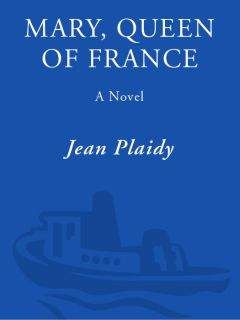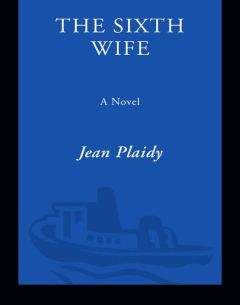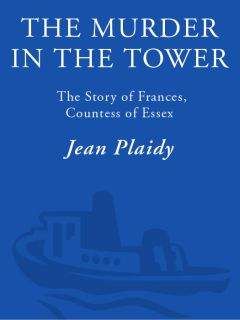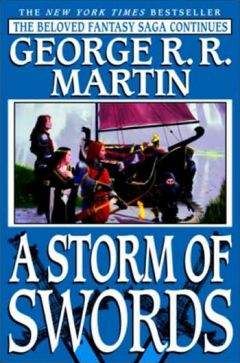“Silence,” cried the Countess. “You are to leave for the nunnery at Bermondsey without delay.”
“A nunnery! I am not ready for that.”
“You will have a choice. It is the nunnery or the Tower. If you go to the nunnery it can be said that you go for your health’s sake. The King and I give you this chance.”
“You and the King do not wish the country to know that I believe the boy Lambert to be the true Earl.”
“That matter will soon be settled. Prepare to leave for the nunnery.”
“I will see my daughter first.”
The Countess lifted her shoulders.
“You must be ready to leave before the end of the day.”
When she was alone Elizabeth felt deflated. The victory was theirs, but she was sure it was a temporary one. Power was in their hands now. It was true they could have sent her to the Tower and she was not so popular with the people that they would greatly care what became of her.
To be sent to the Tower, put in a dark cheerless cell—those places of doom in which a prisoner spent long days and nights, to be forgotten and remembered only when he or she was no longer there and none could be sure how that prisoner had died and none cared.
My little boys, where are you? she wondered. Do your ghosts roam the Tower by night?
And what of the Earl of Warwick? Had he really escaped? Had he gone the way of the little Princes? Who could say?
The Queen came to her. She looked disturbed. So the Countess had told her what was planned.
She went to her daughter and took her in her arms but the Queen was somewhat aloof. The Dowager Queen had never been demonstrative . . . not like King Edward, and it was not possible to become so just when the moment demanded it. It would be so easily detected as forced.
“They are asking me to leave for Bermondsey,” she said.
“I know. You have been involved in this foolish uprising . . . if that is what it will come to. How could you!”
“How could I? Because that boy in Ireland whom they have crowned has more right to the throne than Henry Tudor.”
“How can you say such foolish things! Henry is my husband. I am the Queen. Our marriage has put an end to the Wars of the Roses. York is honored in this marriage as much as Lancaster.”
“Is it? You are the King’s puppet. You do as he says. I am treated as of no importance. Lancaster is in the ascendant. Where is York now?”
“My son is of the houses of both York and Lancaster. Henry is going to make this country great. He knows how to do that but he must have peace. We want none of these foolish troubles . . . and this is a particularly stupid one. I am surprised that you received that priest. I think that Henry is being very lenient in sending you to Bermondsey.”
Elizabeth’s spirits sank. They had taken her daughter from her. They had made her one of them. Perhaps she had been foolish to become involved in this affair. After all would it be so good for her if the young boy was on the throne when her own daughter was Henry’s Queen? But Elizabeth was too meek. She was already one of them. She was on their side against her own mother.
Elizabeth Woodville began to realize that she was lucky merely to be banished to Bermondsey.
There were crowds in the streets of London watching a young boy on a white horse. He was some twelve years old, very pale, for he had been a prisoner in the Tower since the King’s accession and before that had lived in some restraint at Sheriff Hutton.
He was a little bewildered now and looked about him with a kind of dazed wonder as the people pressed round to look at him. He was on his way to St. Paul’s Cathedral where he could hear Mass and confess his sins, which would not take long for there were few sins a prisoner of twelve years old could commit.
The people studied him intently. Was he the real Earl of Warwick as the King said he was? Or was he a substitute? Who could say? Important and influential people said the true one was in Ireland now . . . coming to England to claim the throne.
Who could know the truth?
The King and the Queen were present and the Earl rode close behind them. Looks of recognition passed between the young boy and the Queen, and they shared memories of Sheriff Hutton where they had both been in restraint before the battle of Bosworth. Both had been buffeted from one position to another and all because of who they were.
The young Earl knew why he was in the Tower. His father had died in the Tower, killed they said on the orders of his own brother the great King Edward, to whom Clarence had been a menace. That was the trouble, they were all menaces if they were in the line of succession to the throne—except Elizabeth. She had other uses. She was a Princess and by marriage had joined the Houses of York and Lancaster.
The boy looked at her pleadingly. She understood. He was saying: I should like to be free again. I should like to go into the country, to ride out, to smell the grass and the trees. Freedom is the most important gift in the world and one which is not appreciated until it is lost.
He was hopeful. Elizabeth was kind and she was the Queen now. She would remember their friendship at Sheriff Hutton. Perhaps she could persuade the King to let him go free. If he could only be released he would promise never to try to gain the throne. He would barter all his claims . . . for freedom.
So he rode through the streets where the heralds proclaimed him—Earl of Warwick, son of Clarence . . . alive and well and lodging at the Tower.
The people had seen him. They should know now that the boy those traitors were threatening to bring to England was an impostor.
At least, thought the young Earl, I have had one day of freedom because of him.
So from St. Paul’s he went back to his prison in the Tower.
Elizabeth Woodville was at Bermondsey; the young Earl of Warwick was back in the Tower; but this was not an end to the matter. It had gone too far and there were too many powerful people at the center of it.
The Earl of Lincoln had joined the not inconsiderable army gathered together in Ireland and they were ready to cross the water and make good their claim.
Young Lambert had almost forgotten the days when he had worked in his father’s baker’s shop. He had been an earl and now he was a king. People bowed to him, spoke to him with respect and all he had to do was smile at them and obey his good friend Richard Simon. He was always a little alarmed when Richard Simon was not there. The Earl of Lincoln and Sir Francis Lovell were very respectful to him but they frightened him. He need not be afraid, Richard had told him; all he had to do was speak as he had been taught to and do exactly as they told him. Then he could keep the beautiful crown which had been put on his head.
He had learned to ride and rode at the head of all the soldiers. The Earl of Lincoln was on one side of him and Sir Francis on the other. He was a little nervous because Richard Simon was some way behind. “Don’t be afraid,” Richard had told him. “I shall be there.”
So they boarded the ships and crossed to England with all the men in their splendid uniforms and all the beautiful horses. They landed near Furness in Lancashire and then they started to march.
“The people will flock to our banner,” said the Earl of Lincoln. “They are weary of the Tudor and they know he has no right to the throne.”
But by the time they had reached the town of York it was realized that the people were quite indifferent to their cause. It might be that the Tudor’s claim was slight but they had had enough of war. They had thought the royal marriage had put an end to that and now here was some remote member of the House of York trying to start it all up again.
The Earl of Lincoln grew less optimistic, especially when he heard that the King’s forces were on the march.
The opposing armies met at Stoke and battle ensued. The Germans fought valiantly and, professional soldiers that they were, came within sight of victory; but the King’s forces were too much for even them and gradually they had to face defeat.
The Earl of Lincoln was slain; Lovell managed to escape and Lambert Simnel and the priest Simon, who were not actually involved in the fighting, were surprised together in a tent and taken prisoner.
“It is all over,” said Richard Simon fatalistically. He would never be Archbishop of Canterbury now. He visualized the terrible fate which was customarily meted out to traitors, and for the first time Lambert saw him without hope. The boy was frightened. He did not quite understand what had happened but he did know that something had gone terribly wrong.
They put him on a horse and he rode to London. Richard was on another horse beside him. He supposed now that they would send him back to his father’s baker’s shop. Now that former life seemed more real to him than what had happened since the soldiers had come to the tent.
The King had expressed a wish to see the traitor priest and the boy who had dared pose as the Earl of Warwick and they were brought to the palace of Shene on the river’s edge where the King was staying at that time. They stood before Henry Tudor—the shivering priest who had been too ambitious and the bewildered boy who even now was not quite sure what this was all about.
Henry looked at them coldly.
“So you, sir priest, thought to replace me with this boy?” said the King.
Richard Simon fell on his knees. He could not speak; he could only babble. The boy watched him in bewilderment. He put out a hand to touch him, to try to comfort him in some way. He was less overawed than the priest by the cold-eyed man who was watching him so closely. That was because he did not know the magnitude of what had happened and his part in it. Perhaps it was because the King did not look as splendid as the Earl of Lincoln had when he had first seen him. Perhaps he had grown accustomed now to seeing important men. But the King was by no means the most impressive of these.
“What have you to say, boy?” asked the King.
Lambert looked at him and did not know what to say. They had always told him what to say. Now there was no one to do so.
“Speak up,” said the King.
The priest spoke then: “My lord King, it is no fault of the boy. He did as he was told.”
“So thought I,” said the King. “They took you from your baker’s shop, eh, boy? They set you up as their puppet. That was it. I knew it. You admit it, eh?”
The boy still looked dazed.
“He is a simpleton,” said the King. “What folly was this! Lincoln dead. I am sorry. I should have liked to ask him what foolishness could have possessed him to pass off this half-witted creature as the Earl of Warwick. Take them away . . . both of them.”
So they awaited their sentence. The King was smiling, which was something he rarely did.
He was not sorry that this had happened. He would show the people how he would keep order. There had been this uprising . . . yes . . . with a disgruntled earl and a boy from a baker’s shop. He had quickly suppressed that. He had shown them how he would deal with these impostors.
The ringleaders were dead or in flight and he had only the priest and the half-witted boy to deal with.
It should be a traitor’s death for them both. No. They were not important enough for that. He would show mercy to them both. The priest should be imprisoned for life because he had plotted against the King and might well take it into his knave’s head to do it again. The boy . . . well he was very young; moreover he was addlepated. How could one punish a boy like that? It was no fault of the poor half-witted creature. He had been plucked out of his father’s baker’s shop because of his pleasant looks, which the King admitted was all he had to recommend him.
He should go into the King’s kitchen. That would best suit him.
“Let this Lambert Simnel become one of our scullions,” said the King. “I doubt not he will soon forget his grand aspirations there.”
So Richard Simon, congratulating himself that he had escaped the barbarous traitor’s death, lived on in prison—a contrast to the archbishop’s palace of which he had dreamed; as for Lambert he was happy in the King’s kitchens. His fellow workers laughed at him but without malice, so Lambert laughed with them; and he worked hard and well. He was happier there than he had been sitting on an uncomfortable but very grand chair with a crown on his head.
In the streets they laughed at the story of Lambert Simnel—which, said the King to his mother, was the way he had hoped it would be.
Coronation
lthough people laughed to think of the leader of a rebellion now working as a scullion in the King’s own kitchens, Henry himself did not dismiss the matter so lightly. He talked it over with a young man whom he had recently made one of his Privy Councillors and toward whom he had felt especially drawn. This was Edmund Dudley, a lawyer in his twenties who was showing characteristics which were not unlike the King’s own.
Henry wanted to gather round him men of his own choosing. No king should inherit statesmen for they would most certainly compare the present master with the previous one and as the departed always gained in stature such comparisons put the living at a disadvantage.
Henry’s early life had made him suspicious and cautious and acceding to the throne had not lessened these traits in his character. Edmund Dudley who had studied law at Gray’s Inn and had later become Sheriff of Sussex was a man with whom he felt immediately in harmony; also Dudley had an associate, Richard Empson, another lawyer, educated for the Bar, who had already shown himself to be an astute lawyer. These were the kind of sharp minds Henry needed around him; and he had already shown favor to these two.
So now as they walked down to the river’s edge in the grounds of his favorite Palace of Shene and they talked of the rising of Lambert Simnel, Dudley commented that it was a sobering thought to contemplate how many Lincoln had been able to rally to his banner.
“And what do you think this indicates?” asked the King.
Intercepting the look which passed between Dudley and Empson, Henry knew that they had discussed the matter together.
“Come, speak up. I shall not be offended by truth.”
“Sire,” said Dudley, “the people approve of your marriage and the uniting of York and Lancaster, but they are saying that York does not receive its dues.”
“What do they mean by this?”
“That Lancaster is in the ascendancy.”
“It must be so since I am the King.”
Dudley hesitated and Empson nodded to him.
“My lord,” he said, “you have taken the throne, you have an heir in Prince Arthur, you have been crowned King of England, yet the Queen has not been crowned.”
“Ah,” said the King. “You think a coronation would please the people?”
“Coronations are ever a source of delight to the people, Sire,” said Empson. “Free wine in the streets . . . celebrations throughout the country . . . They love their ceremonies. But we were thinking of the Yorkists who might have reason to complain.”





